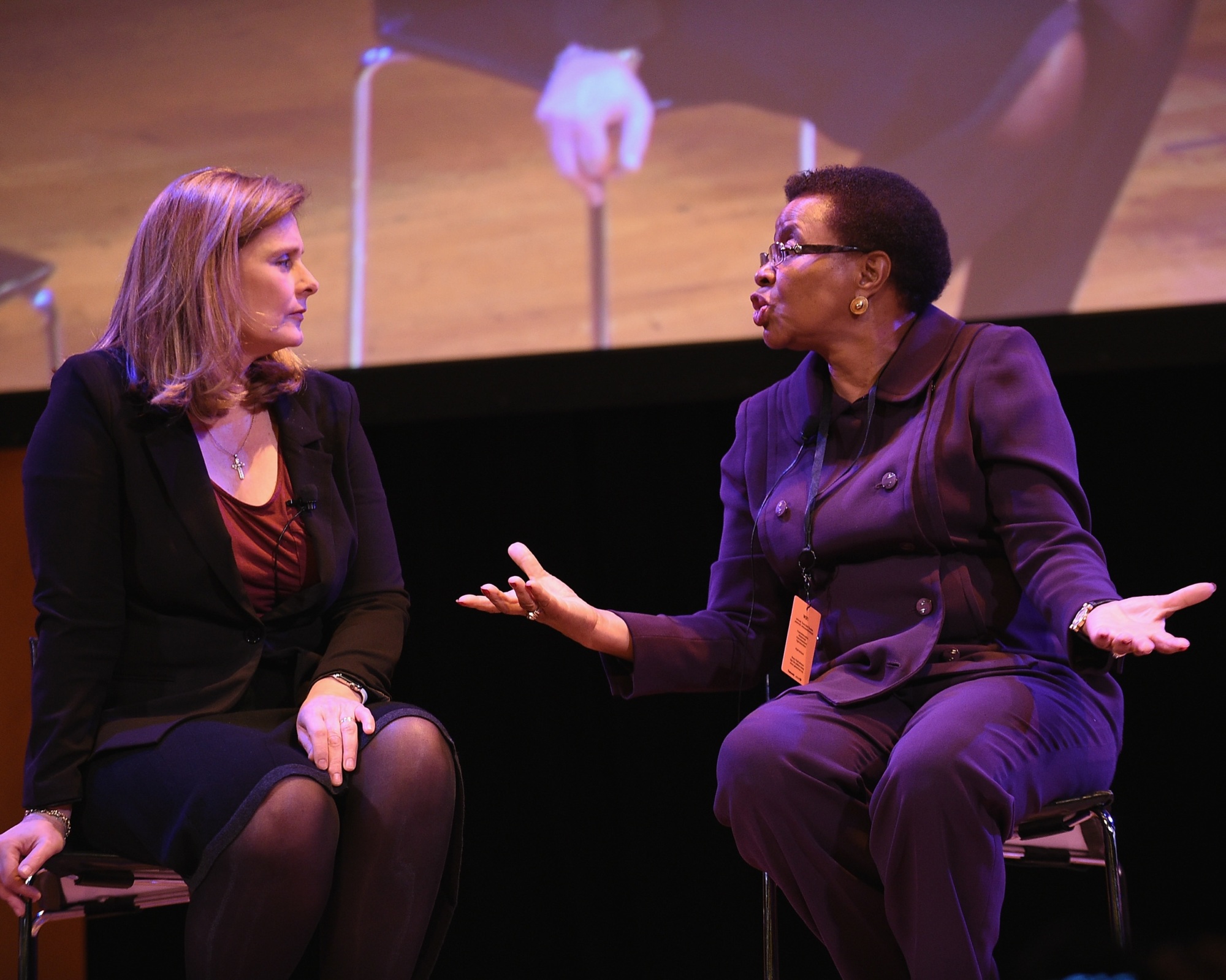The UN Global Compact’s Private Sector Forum: Beyond CSR?

GBC-Education Executive Chair Sarah Brown on a panel with Minister for Education and Culture of Mozambique Graca Machel at Theirworld and UNICEF’s #UpForSchool Town Hall event on Sept. 28. / Getty Images for #UpForSchool.
We all know that Corporate Social Responsibility is win-win: business does something good for the community, and its employees do their day jobs in more motivated ways as a result of having been involved.
Yesterday, 200,000 Syrian refugee children will have the chance to return to school in Lebanon — some of them for the first time in more than four years. It was because of join efforts from the public and private sectors that these children are able to continue their education due to the innovative double-shift schooling system recently proposed through a collaboration with Theirworld, A World at School, and GBC-Education.
This year’s UN Global Compact private sector forum, taking place just days before Lebanon’s first day of school, demonstrated the way that many businesses are moving beyond the idea of contributing to efforts like increasing access to education to the world’s out-of-school youth. The private sector’s entrance won’t just disrupt the old humanitarian order: It needs to disrupt the old humanitarian order in order to make a lasting impact. Governments and NGOs are the first to admit that they cannot deliver the new Sustainable Development Goals alone, and increasingly private sector has a business case to help them do so. Every speaker from the UN, including Secretary-General Ban Ki-moon, acknowledged the limits of what the institutions can do. The sweet spot lies in the creation of new alliances, harnessing not just the money that business can donate, but the ingenuity, creativity and networks it can unleash.
So rather than a company like IKEA being asked to contribute to a fund for refugees, it is coming up with ingenious ways to provide affordable shelter. As Mark Zuckerberg explained to us, Facebook’s best contribution is to get refugees online – for every ten people connected, one is lifted out of poverty. Companies like Microsoft and GEMS are coming up with ingenious tech solutions to get schooling where NGOs can’t go – education without borders. If we are able to map where the gaps are in humanitarian delivery, we should be able to matchmake companies with the actions they can take.
GBC-Education is at the heart of this effort. We want to act as a galvaniser of new ways of confronting old challenges; a connector of private sector ideas to humanitarian problems; and an amplifier of the work already underway. Just as governments commit 0.7% of their GDP to fight poverty, the private sector, and individual citizens could commit 0.7% of their profits, and more importantly time. Get this right, and we move beyond CSR as Corporate Social Responsibility to CSR as Corporate Social Results. Please don’t wait to be asked to help.
